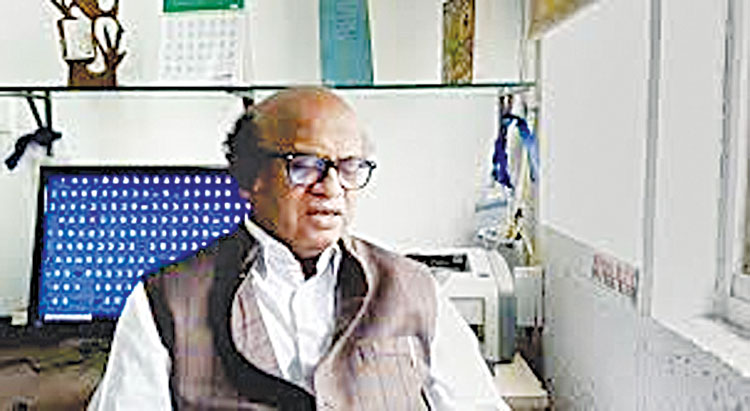New Delhi, Jan 18 (Mayank Nigam) Symbiosis School of Economics organized an International conference on the ‘Future of Employment: Challenges and Opportunities’ (FECO 2023). The conference commenced on Wednesday with international experts and think tanks from academic institutions and industry in attendance. The speakers of the inaugural session were Dr. Alakh Sharma, Director, Institute of Human Development, Mr. Satoshi Sasaki, Deputy Director, ILO and Dr. Santosh Mehrotra, Visiting Professor, University of Bath. The inauguration ceremony of the conference was graced by Dr. Vidya Yeravdekar, Pro-Chancellor, Symbiosis International University and Dr. Rajani Gupte, Vice- Chancellor, Symbiosis International University.
During his speech Dr. Alakh Sharma, Director, Institute of Human Development shared his observations on the factors leading to the current employment scenario in the country, highlighting that the high rate of growth has impacted the Indian labour market, causing a slow reduction in employment in agriculture and an increase in that of services while the share of manufacturing is almost constant. Despite the rise in labor productivity in almost all sectors due to increasing capital intensity, overall growth is becoming less employment intensive. He pointed out that India’s labour markets still exhibit characteristics of a developing country: low unemployment levels but relatively low earnings for the large numbers. He concluded that the country faces the following challenges for employment: increasing educated youth unemployment, declining women’s work participation rates but increasing unemployment, low levels of education and skills, uncertainty brought on by new technologies and digitalisation. Mr. Satoshi Sasaki, Deputy Director, ILO spoke about policies and frameworks that should be adopted to ensure inclusive and sustainable employment. He stated that coordinated employment and social protection strategies to facilitate just transition and that public, private, domestic and international resources need to be mobilised to facilitate international strategies including those for protection of workers in the workplace.
He observed that the key priorities for India as it moves forward to its 75th year of independence are women-based development which will require constant investment in the care economy (to reduce gender-based discrimination in wages) and transformation into a green economy. Dr. Santosh Mehrotra, Visiting Professor, University of Bath emphasised the importance of India’s demographic dividend while stressing that if the dividend is not realized from 2040 onwards, it can be a missed opportunity for India as 3rds of the population that is below 35 today- will have aged without being able to become rich. He pointed out that three demographic groups were at risk of a job crisis: small and marginal farmers, youth and women. With the advent of the fourth industrial revolution and beyond, AI and ML are increasingly creating new opportunities which will help collate data, and create a new class of employable youth, leading to a high demand for humanities.

